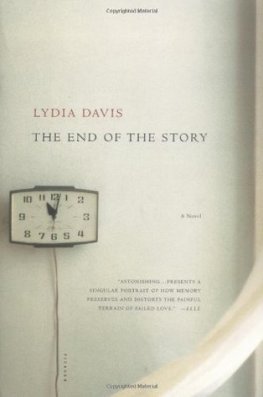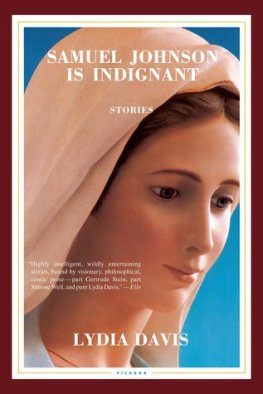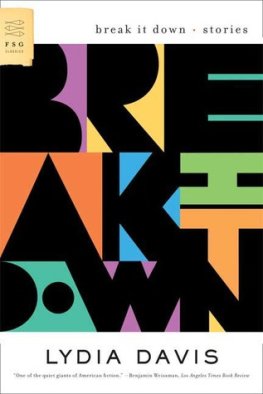Fibrils
Fibrils
The Rules of the Game, Volume 3
MICHEL LEIRIS
TRANSLATED FROM THE FRENCH BY LYDIA DAVIS


The Margellos World Republic of Letters is dedicated to making literary works from around the globe available in English through translation. It brings to the English-speaking world the work of leading poets, novelists, essayists, philosophers, and playwrights from Europe, Latin America, Africa, Asia, and the Middle East to stimulate international discourse and creative exchange.
English translation copyright 2017 by Lydia Davis.
Originally published in French as La Rgle du jeu III: Fibrilles, copyright Editions GALLIMARD, Paris, 1966.
All rights reserved. This book may not be reproduced, in whole or in part, including illustrations, in any form (beyond that copying permitted by Sections 107 and 108 of the U.S. Copyright Law and except by reviewers for the public press), without written permission from the publishers.
Yale University Press books may be purchased in quantity for educational, business, or promotional use. For information, please e-mail (U.K. office).
Set in Electra and Nobel type by Tseng Information Systems, Inc. Printed in the United States of America.
Library of Congress Control Number: 2016944312
ISBN 978-0-300-21239-6 (hardcover : alk. paper)
A catalogue record for this book is available from the British Library.
This paper meets the requirements of ANSI/NISO Z39.48-1992 (Permanence of Paper).
10 9 8 7 6 5 4 3 2 1
Contents
Translators Note
In his massive, four-volume autobiographical project, La Rgle du jeu (The Rules of the Game), Michel Leiris anticipated certain works very much of the moment in our twenty-first century: this is a writers multivolume, ruthlessly honest examination of himself that admits into its arena the banal and quotidian as well as the dramatic and rare. But beyond the fact that Leiriss work was begun some seventy-five years ago, there are a couple of other important critical considerations: Leiris, by the time he began La Rgle, had rejected fiction and embraced realismhe called what he was doing not a novel but an autobiographical essay. And second, the project extended over thirty-five yearsbegun when he was barely forty and completed when he was in his seventiesso that it had the scope and endurance to contain his reflections and objectives as they changed over time: we are fully brought into his mind, and we accompany his thinking as it matures.
As he was writing volume one, Leiris evidently foresaw a second volume, but not more. Similarly, in Fibrilles (Fibrils), the third volume, published in 1966, he appears, from the tone of his conclusion, not to have anticipated volume four. But after that one, was the work finished? Not quite, since the fourth was followed by separate but related work in 1981. Le Ruban au cou dOlympia (The Ribbon around Olympias Neck)which takes its title, and one of its recurring subjects, from Manets painting of a recumbent prostitute clothed only in a black ribboncenters upon the expressive power of fetishism in a broader, not merely erotic, sense. (It includes, for example, a brief text on the act of writing as hurling a lasso, and another about the urgent desire to smoke when one is already smoking.)
In addition, extending the scope of the project backward in time, the four volumes of La Rgle were in fact preceded not by a trial run but by a first exploration by Leiris into the territory of himself, this one concentrating specifically on his sexuality: LAge dhomme (1939). Published in English, in Richard Howards translation, as Manhood in 1968, it depicts the full range of sexual obsessions of a manor this man, in any caseas he grows into manhood: daydream, masturbation, impotence, celibacy, homosexuality, prostitution, marriage.
Michel Leiris was born in 1901, within a comfortable bourgeois family in Paris. He was educated at the Lyce Janson de Sailly (in philosophy), the Sorbonne, and the Ecole pratique des hautes tudes. After a tentative sortie into the study of chemistry, he cast his lot with the world of writing and art, with the ambition of becoming a poet, as he describes in the present volume. When he was not yet twenty, he met Max Jacob and through him became involved in a circle of Dadaists and Surrealists, identifying himself as a Surrealist until he broke with the group in 1929. A somewhat emotional decision in 1931 to take part, as secretary-archivist, in a two-year ethnographic expedition across sub-Saharan Africa led, after extensive further coursework, to a career as professional ethnographer. He continued that career, occupying a post at one division of Pariss natural history museum, the Muse de lHomme, until late in his working life, pairing it with his equally full career as writer.
Throughout his long life, prolific and productive until close to his death at age eighty-nine, Leiris wrote a variety of works in different genres: essays on jazz, the theater, literature, and art; volumes of poetry and poetic prose; the vast, rich journal that resulted from his African expedition, LAfrique fantme (Phantom Africa); an eccentric dictionary of personal definitions evolving from wordplay and private associations called Glossaire: Jy serre mes gloses; the surrealist novel Aurora; a collection of his dreams and his dreamlike waking experiences, Nuits sans nuit et quelques jours sans jour (translated by Richard Sieburth into English under the title Nights as Day, Days as Night); essays and book-length studies in the field of ethnography; prefaces and catalogue texts, book reviews, political texts; and most regularly appreciations of artists and writers, particularly within the wide circle of those he knew personallyamong them Andr Masson, Mir, Raymond Roussel, Francis Bacon, Raymond Queneau, Picasso, Michel Butor, Sartre, Duchamp, Giacometti.
It was in the midst of this other writing activity, in the early 1940s, that Leiris embarked upon what was to be his masterwork, the work on which his enduring literary reputation would rest: the autobiographical essayas he later described itcalled The Rules of the Game. Most of the first volume was written during the German occupation of France; the final volume was completed in 1975. He was henceforth to divide his life among his continuing autobiographical project; his multifarious other writing; his editorial activities; his political activities; his family and friendships; his travels; and his ethnographic work.
With Biffures (Scratches), volume one of La Rgle, Leiris began his extended project, the objectives of which fully emerge only over the successive volumesto write in order to see more clearly into himself, to work out his personal identity, at the same time to unite the two tendencies in himself between which he felt divided: on the one hand, poetry, the attraction to the over-there, to myth, to timelessness; and on the other, morality, knowledge, the right-here, lived reality; and to formulate a definitive golden rule, the rule that, he hoped, would both govern his ars poeticahis poeticsand be a rule for living, a savoir-vivre, an ethics, the code by which he would live.
He opens the book with one of his continuing central preoccupations, language in all its aspects: language as the raw material of poetry; the mysteries of language; the sounds of words, taken in themselves; the elusive and personal meanings of these sounds and of words themselves; private language versus shared language; language as connection to others; the discoveries possible through language; the failure of language. Cataloguing, or inventorying, his memories from various periods of his life, but especially from his childhood, he begins the book with the mystery he found in language when he was a child, in his misunderstandings of names, songs, scraps of speechmisunderstandings that created for him an alternate universe of things, people, customs, emotions. In this volume, he comes to define the literary use of speech as a way of sharpening ones consciousness in order to be moreand in a better wayalive. The relationship, then, is reciprocal: the writer lives in order to write, but also writes in order to be more fully alive.
Next page









